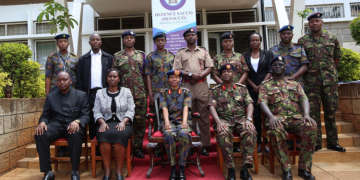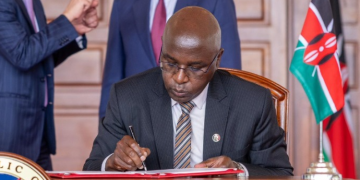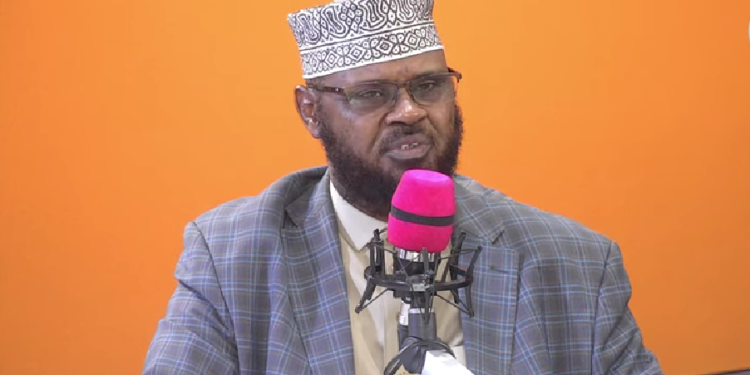The Judicial Service Commission (JSC) has appointed Sukyan Omar Hassan as the Acting Chief Kadhi, effective August 6, 2025.
Sukyan’s appointment follows the death of Chief Kadhi Sheikh Athman Abdul-Halim on July 10, 2025.
In a statement on Monday, August 11, the commission said the decision was made during its meeting held on July 14, 2025.
“The Judicial Service Commission at its meeting held on 14th July 2025 and in accordance with Article 170 of the Constitution and Section 2 of the Kadhis Court Act, considered and approved the appointment of a serving Kadhi to act in the position of Chief Kadhi,” read the statement in part.
“The position of Chief Kadhi fell vacant following the demise of Hon. Sheik Athman Abdul-Halim on 10th July 2025. Consequently, Hon. Sukyan Omar Hassan, Senior Principal Kadhi has been appointed to act in the position of Chief Kadhi with effect from 6th August 2025.”
Also Read: CJ Koome Issues Update on Recruitment of Judges, Magistrates & Kadhis
Sukyan Omar will discharge all the duties and responsibilities of the Chief Kadhi during acting period.
The acting appointment is for a period of Three (3) Months or until the position is substantially filed, whichever comes earlier.
JSC Appoints Sukyan Omar as Acting Chief Kadhі
Sukyan served as Deputy Chief Kadhi during the late Athman’s tenure.
Athman was appointed by the Judicial Service Commission (JSC) in July 2023, selected from five candidates shortlisted for the position.
He replaced Sheikh Ahmed Mudhar, who retired at the age of 60 after serving as the head of the country’s Kadhis’ courts for 12 years.
Also Read: Step by Step Process of Appointing a New Chief Kadhi in Kenya
The Chief Kadhi is the overall leader of the Kadhis’ Courts, which handle matters related to Islamic personal law such as marriage, divorce, and inheritance.
The role of Chief Kadhi is a constitutional position within the Judiciary and is reserved for Muslims who meet specific qualifications, including holding a degree in Islamic Law, demonstrating good conduct according to Islamic principles, and being members of recognised Islamic associations.
The office also requires adherence to Chapter Six of the Constitution.
Kadhis’ Courts have jurisdiction limited to determining questions of Muslim law relating to personal status, marriage, divorce, or inheritance in proceedings where all parties profess the Muslim faith and submit to the courts’ jurisdiction.
There are 14 standalone Kadhis’ Courts, while others operate within various Magistrates’ Courts across the country.
Follow our WhatsApp Channel and X Account for real-time news updates.






























![Anonymous Philanthropist Among Stakeholders Paying Sha For Over 2 Million Kenyans [List] Anonymous Philanthropist Among Stakeholders Paying Sha For Over 2 Million Kenyans [List]]( https://thekenyatimescdn-ese7d3e7ghdnbfa9.z01.azurefd.net/prodimages/uploads/2025/09/sha-ruto-2-360x180.png)















































